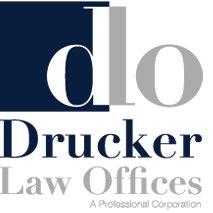Choosing A Trustee
What constitutes a good trustee? This is a question every person who creates a revocable living trust must consider when deciding who to designate to serve as successor trustees of the trust. The person creating the trust (known as the settlor) typically will serve as the initial trustee of the trust. When the settlor is no longer able to serve as trustee, either due to incapacity or death, the person or bank designated by the settlor to serve as successor trustee will take over and manage the trust’s assets. In general, the settlor should choose persons to serve as successor trustees who have the ability to properly manage the trust’s assets and who have interpersonal skills to deal with the trust beneficiaries and minimize conflicts.
First and foremost, the trustee must be financially responsible and have the ability to manage assets. Of course, a trustee does not have to be a financial expert. The trustee may rely on financial advisors to provide investment advice.
The trustee must work well with others because he or she will have to interact with the trust beneficiaries to address their requests and complaints. Sometimes, trust beneficiaries can be difficult, so the trustee needs to be diplomatic and have good problem solving skills. If a personality conflict already exists between the proposed trustee and the trust beneficiaries before the proposed trustee has the job as trustee, you can be sure that there will be friction when this person is actually serving as Trustee. If this is the case, it’s a good idea not to designate this person to serve as a trustee.
The settlor should avoid designating a person who has a potential conflict of interest in managing the trust’s assets. For example, if the person being considered to serve as a successor trustee is the settlor’s business partner, he or she may have a joint ownership interest in the trust assets. The business partner, acting as trustee, potentially may manage the assets in his or her self-interest and against the best interest of the trust. Even if this person does do this, the beneficiaries may always challenge the trustee’s actions with the belief that he or she is engaging in self-dealing transactions that do not benefit the trust. In situations like this, it is best to avoid the potential conflict of interest by not designating this person as a trustee.
Another common problem arises when a family member is designated to serve as a trustee in a blended family situation. In a blended family situation, there are typically children from a prior relationship or relationships and a spouse who is not the parent of any of the children. When the surviving spouse (who is not the parent of the deceased spouse’s children) becomes the sole trustee of the trust, conflict may arise between the surviving spouse and the children, as trust beneficiaries. It is best to avoid appointing a person who will cause a conflict among the beneficiaries.
In situations where designating certain individuals will give rise to a potential conflict of interest with respect to trust’s assets or a potential conflict among family members, it is wise to consider designating a bank or a private professional trustee to serve as the successor trustee. A bank or private professional trustee is a neutral party who has the resources and experience to properly manage the trust’s assets and the skills to work with the trust’s beneficiaries. By designating the bank or private professional trustee to serve as a successor trustee of the trust, the settlor may effectively avoid the potential conflicts of interest.
The settlor must make thoughtful choices in designating successor trustees of the trust in order to insure the proper administration of the trust and to avoid potential conflicts that could lead to lengthy and expensive trust litigation in the future.
If you would like to discuss this or other trusts and estates issues, please contact the attorneys at Drucker Law Offices, 468 North Camden Drive, 2nd Floor, Beverly Hills, CA 90210, 310.285.5375 Tel, 310.444.9754 Fax, www.druckerlaw.com


